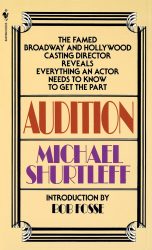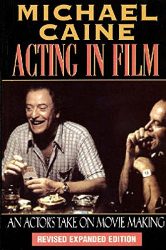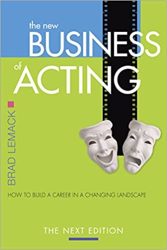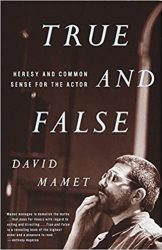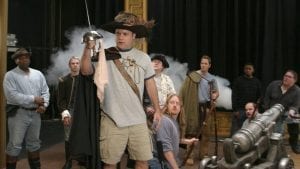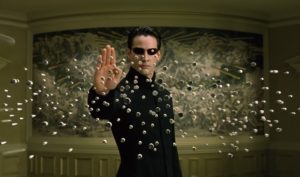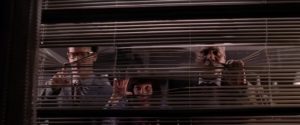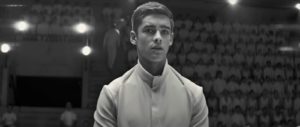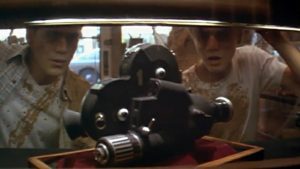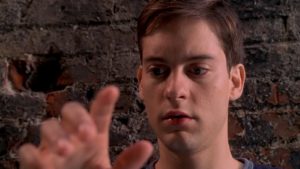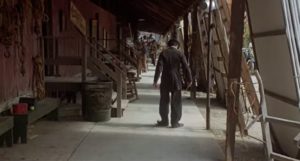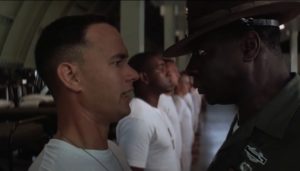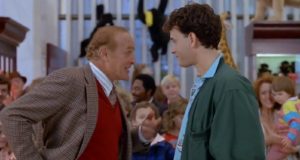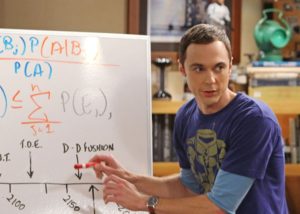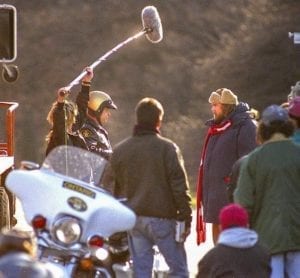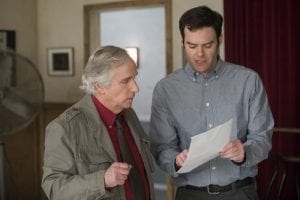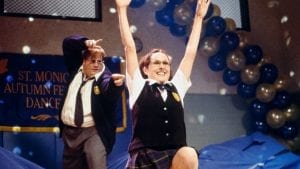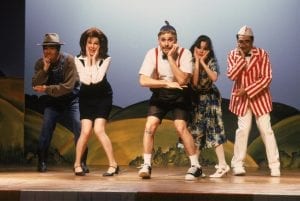
In this article, we look at more real actors’ memory techniques (similar to our previous article, How Actors Memorize Lines – Part 1). We’ve compiled quotes, including many quotes by famous actors, on memorizing lines.
Famous actors memorize lines by practicing with acronyms, repeating lines with different rhythms, listening to recordings of lines, and other methods. They also do other things in the background (such as running or juggling) both while memorizing lines and to test how well they remember their lines.
This article contains quotes from actors, including famous actors, on memorizing lines. You may notice that actors often rely on multiple memorization techniques and that their memorization techniques can change over time.
1. Robert Downey Jr.
“I would get it down to an acronym. So if there was a thousand words I had to remember, I would just remember the first letter of each and I would put it on a piece of poster board and then I would stand away from it . . . far enough away to where I can see it, but kind of can’t see it (back when my vision was little more clear) and I would just run it and run it and run it. When I did the first Sherlock, we were rewriting it so much, you know, to have pages and pages of stuff. I was like, give me an earwig. And it helped me with my accent. And then I started getting into like, you know, what’s so great? I can finish work, go home, hang out with my kids or do whatever I want to do, go train. And in the morning they can change it all they want . . . And now I’ve kind of gone as far as you can go with that. And I’ll probably go back to a new method or a new version of the old method.” [full interview]
Key Learning:
The first method that Robert Downey Jr. mentions is something that other actors, such as Rob Lowe, have mentioned using as well. The method, as it is typically described, works like this: you take your text and you write down the first letter of each word as well as the punctuation.
For example, here’s part of Hamlet’s speech:
Speak the speech, I pray you, as I pronounced it to you, trippingly on the tongue. But if you mouth it, as many of your players do, I had as lief the town crier spoke my lines.
Writing down only the first letter of each word and the punctuation, that original text turns into this series of letters and punctuation:
S t s, I p y, a I p i t t y, t o t t. B i y m i, a m o y p d, I h a l t t c s m l.
The actor then tries to recite the original text using only that series of letters and punctuation to help prompt their memory. It’s like training wheels for memory, so that instead of jumping into the deep end of memorization you can start off in the shallow end where you can still have something to support yourself on. Some say that this method helps them speed up the process of their memorization.
2. Christopher Walken
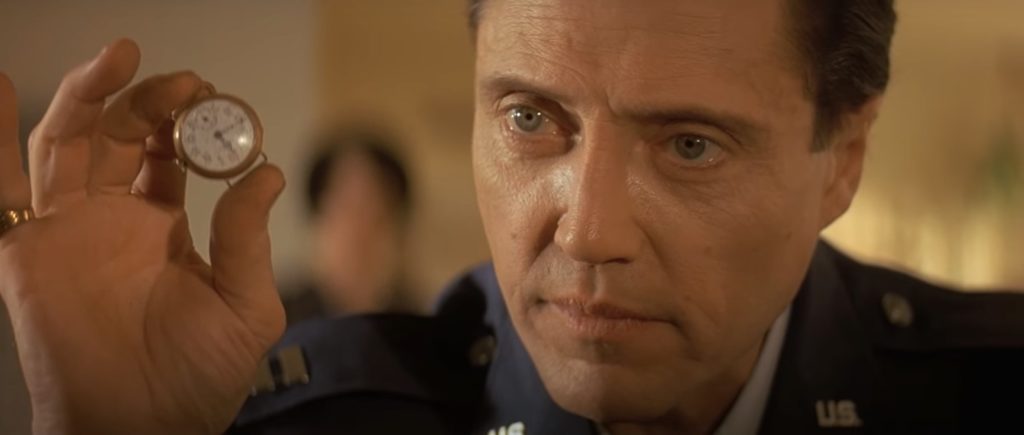
“My favorite thing is to have two scripts at the same time, and study them simultaneously in the kitchen. Go over the words, over and over, do them different ways, different inflections and rhythms. For me, rhythm is very important. I think we express ourselves as much with rhythm as with the words.” [full article]
Key Learning:
Back in Part 1 we saw that Katee Sackhoff does exercises while learning lines because she likes doing something else at the same time as learning her lines. Similarly, here we see that Christopher Walken also likes doing multiple things at once, except in his case all the extra things are acting-related: studying an additional script and experimenting with different rhythms. You can use the same principle to come up with additional things to do while learning lines. For example, something I like to do is go through my lines with different emotions; I find that this method helps me be flexible in my performance, allowing me to adapt to my scene partners on set and make sure that what I do is compatible with them.
3. Michael Barra
“Ideally I have either a friend or a family member . . . running the scene with you . . . what I have done in the past in order to not have to annoy someone to run lines with me is I’ve actually recorded the other lines in the scene and left space for mine. That doesn’t help with my acting at all because you’re not, hey, you don’t have a scene partner, you’re just reading the lines just on a tape recorder, but it definitely helps for just memorization . . . when I tape that I’ll read the person’s line and then I’ll do my line in my head, so I know about how long it takes, and then I’ll read the next line”. [full video]
Key Learning:
When doing research to help them understand their character better, actors sometimes get help by talking to real people who might be similar to the character. Similarly, when learning lines, as Michael Barra mentions, actors might get help from other who are willing to run lines with them. In both cases, the actor gets a better sense of what is realistic (in the case of character research, their interviews with people help them let go of their stereotypes and, in the case of memorizing lines, running lines with people helps replicate the feeling of having to act in front of people who are interacting with you).
It’s also interesting to note that there are various options for workarounds. Similar to how an interview with someone can be somewhat replaced by reading a book that they wrote, so can running lines with people be somewhat replaced by responding to recorded messages or to statements on cue cards. These workarounds can have different advantages and disadvantages. In any case, it is good to know multiple techniques to help you memorize lines because, as Michael Barra states, the ideal technique might not always be available.
4. Terry Crews
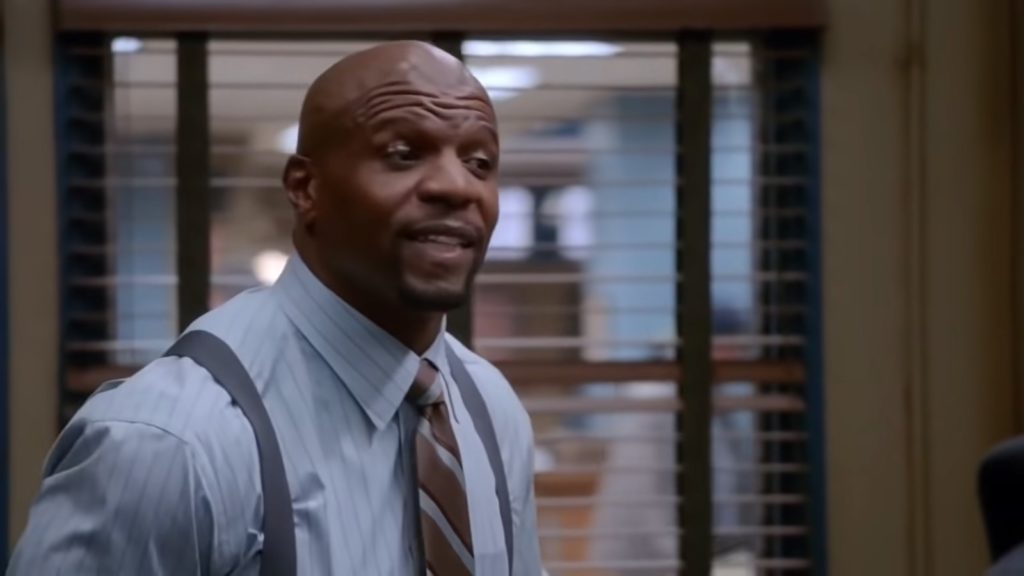
“I am huge into cardio. I run 4 miles a day, minimum . . . It helps me learn my lines better. I’ll speak my lines into a recorder and put it on a loop on my iPod and listen to it while I run, and by the time I’m done with my run I know all my lines. I think your brain kicks into another gear when you’re doing something repetitive like running. It’s a whole other Zen state. It goes right into your subconscious.” [full article]
Key Learning:
Multiple actors have said that running helps them memorize their lines. Possibly, as Terry Crews says, the repetitive nature of running helps you absorb the lines better. Additionally, there have been many scientific studies (such as this one and this one) that have found physical exercise to be associated with memory improvement. That can make sense: if exercise helps increase blood flow, then that can lead to improved flow of oxygen and nutrients to brain cells, helping them function better. By the way, one can also note that Terry Crews doesn’t just listen to his lines. He also records them. This active engagement with the material he’s learning is an additional factor that can help with memorization.
5. John C. McGinley

“I write it out in a composition book, and then I put verbs in the margins of what I’m trying to do, and then I juggle. And if I juggle while I’m doing the lines and I drop a ball, it means either I don’t know the lines or the lines aren’t right for me, and so it’s like an x-ray machine for dialogue memorization, and so I’ve just come up with that system over the years.” [full video]
Key Learning:
Instead of thinking of the memorization as a global thing that you’ve either accomplished or didn’t, it can help to pay attention to which parts of the script you’ve memorized better/worse than other parts, because then you can focus more of your attention to those problem areas. There are many ways of testing yourself to diagnose those problem areas. John C. McGinley’s example of juggling while speaking can be generalized to doing an attention-requiring task in the background while doing your lines.
Therefore, the task doesn’t have to be juggling, it can be something else, such as guitar playing. Many beginner guitar players say that they find it very difficult to sing while playing the guitar because it’s difficult for them to focus on the singing and playing all at once. If you can manage to say your lines while doing something else that requires your attention, that means your lines don’t require too much of your attention, which is a good sign because then you’ll be able to direct that attention in your performance toward being present in the scene and actively listening and reacting to your scene partners. Another method to identify problem areas in your memorized lines, as mentioned previously in Part 1, is to say your lines as quickly as possible without any pauses. You can then identify your problem areas by seeing where you couldn’t help but pause to think.
6. Chris Cooper
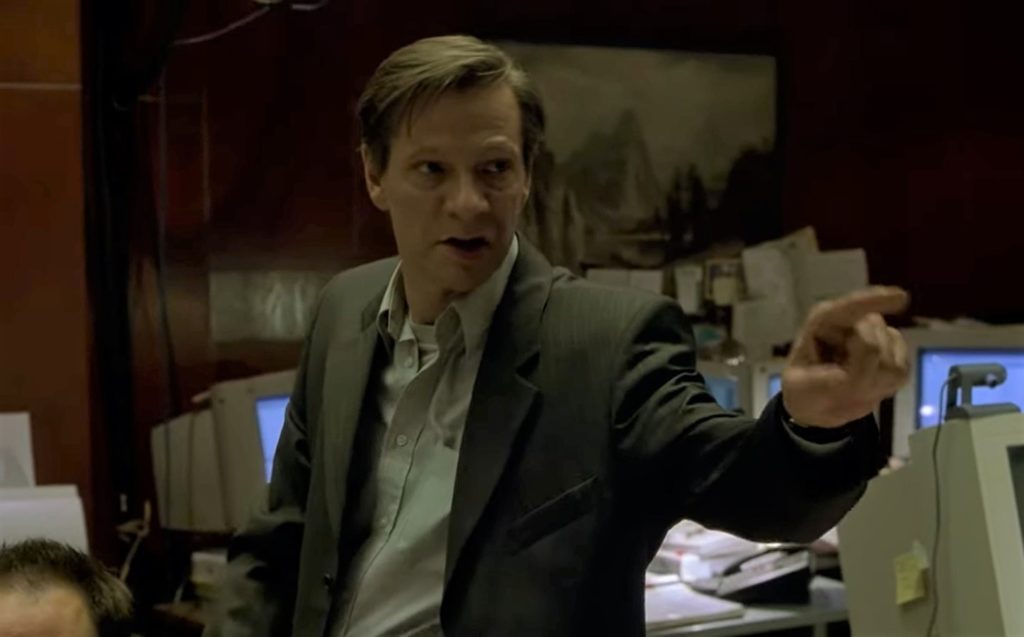
“I have a handful of different colored pens that I use when I’m memorizing my lines . . . I highlight all my lines in the script in yellow. If I still can’t remember a specific word, I’ll box that in green. It puts out the radar that I need to keep working on that word. If I say a line in unison with another character, I’ll hit that with a red Sharpie.” [full article]
Key Learning:
Once you’ve identified a part of the text is that is a problem area for you, one way you can help yourself remember it better next time is by making it easier to see on the page, such as by drawing a box around it with a green marker, as Chris Cooper does. That way, when you glance at the page, even if you’re not doing any memorizing in the moment, that outlined word will pop out at you anyway, getting your attention more often and giving you more opportunities to memorize it.
7. Brittany Snow

“I have to walk around my room. I have to drink or eat something—something with the left and the right brain; I have to be doing something while I memorize. So usually, my fiancé sits there and we just run it and I just walk around the room, but it takes me a while . . . It’s also just knowing and being comfortable with the character and realizing that it’s OK to mess up. The more that I know it’s OK to mess up, the better I can memorize. But if I know I can’t mess up at all, then my brain freaks out.” [full article]
Key Learning:
We’ve seen already that actors can do other things while memorizing their lines; however, the purpose behind those background actions can be different. One way you can use those background actions is to take up some of your attention and add some extra stress so that you can test how well you’ve memorized your lines, as in John C. McGinley’s example above with juggling; also, as Sarah Paulson says, “If you can do all your lines while making dinner, you probably know them pretty well.” [full article]. However, another way you can use background actions is to help relax you while you’re still in the process of learning your lines, as Brittany Snow describes above, and you can add in the stress later when you’re more ready for that kind of challenge.
8. John Connors
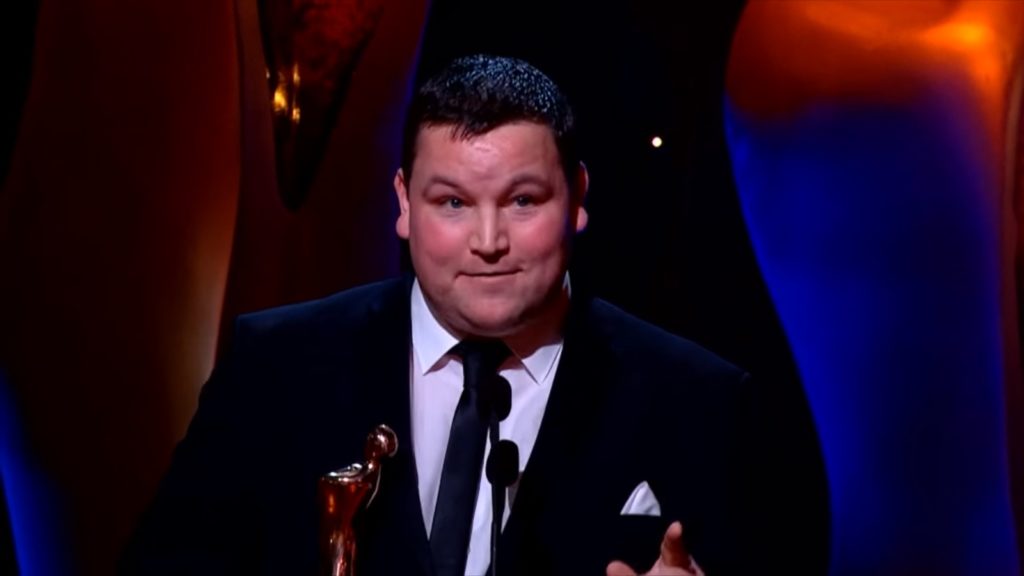
“Just read the first three lines 19 times. Then read the next three 19 times, and the next three 19 times, and then you get your first kind of paragraph or whatever . . . and then give that a go by itself, and then go down again, and go down again, and go down again, and keep doing that, and keep doing that.” [full podcast episode]
Key Learning:
Back in Part 1, we saw that Anthony Hopkins reads his scripts a specific number of times. In this case, we see a similar but different type of repetition: repeating not the whole script but a few lines a specific number of times and then building up from there. “Repetition” by itself is a vague word and some may find it daunting, but what is often daunting isn’t the task itself but rather the feeling that you never know how much is enough. When you’re never completely sure that you’re done, that tends to make the task feel long and tiring. Adding specific criteria to indicate when the repetition counts as completed makes the work feel easier. It’s like the difference between swimming in the middle of an ocean for an unknown distance . . . and simply swimming to the shore, which, even if far, is always in sight.
9. Matthew McConaughey
“You look at what’s on the text. First, you read it and you try to understand it. You read it again. Me, I read it after a run when my endorphins are flying, I read it late Saturday night when I’ve got a good buzz going, I read it right after church when I’m in a forgiving mood. I’ll read it when I’m mad, sad, glad, happy, excited — many different places where I am personally, I’ll read a script. That means I’ll have a different look at the same scenes, because I’m in a different place.” [full article]
Key Learning:
Learning lines can be made into a side effect rather than the goal. The repetitive script reading an actor does can be done not for the sake of memorizing the lines but for the sake of understanding the character and the story better (as described in the article about how actors read scripts). Furthermore, just because it’s repetition doesn’t mean it’s the same every time. In the words of Ancient Greek philosopher Heraclitus, “No man ever steps in the same river twice, for it’s not the same river and he’s not the same man.” Similarly, when you read the script twice, you can be reading it with different things going on in the back of your mind, leading to different thoughts. This idea of repeating for the sake of exploration and understanding rather than for the sake of repetition can make the task feel mentally easier.
10. Torrey DeVitto

“Writing down my lines. If I have a hard time memorizing some lines, I will study the scene, and instead of saying my lines aloud, I will write them all out. I’ll do that about seven times and know, confidently, that I will wake up knowing them.” [full article]
Key Learnings:
Many actors write out their lines to help themselves memorize them. Additionally, some find that studying their lines before bedtime helps them memorize their lines better. There has been scientific research (such as this study) that has shown that sleep helps consolidate (stabilize) new memories, especially if the sleep occurs relatively soon after the learning has taken place (in other words, if the studying occurred close to bedtime). From Torrey DeVitto’s quote we can also see that, after you have enough experience with a memorization method that works for you, you can predict how long it will take for you to memorize your lines, and you can go to bed with a sense of confidence.
11. Michael Kelly
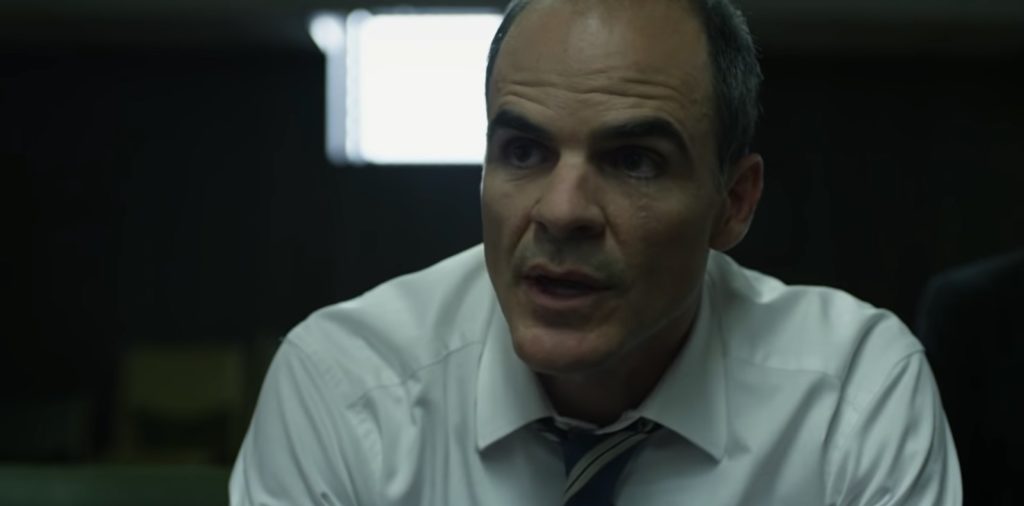
“I have a really cool tabbing system. You know those little yellow tabs? I tab everything, and I write the scene number on there. And then I asterisk it. A dot if there is no lines. One if it’s easy. Two if it’s somewhat difficult, and three if it’s like, “Oh [obscenity], you really gotta work on this scene.” . . . And then I take my schedule and I write out on the schedule . . . But as far as physically memorizing it, I think the best way for me, especially on House of Cards is that I drive back and forth to Baltimore all the time. And when I go the gym, I record all of my scenes. Both characters. I record everything in a very flat monotone so that I don’t get in my head how I want to do something. And I just listen to it over and over and over. And that helps a lot. And then, I write it out . . . it’s probably the best thing for me because when I go over it 30 or 40 or 50 times, I’m always discovering new things as I go.” [full article]
Key Learning:
Previously we saw examples of actors who record lines and listen to them. Some record only their lines, some record only the other lines, and now we see that Michael Kelly records everyone’s lines, both his own and the other characters’ lines. It is important to note that he records the lines in a monotone way so he keeps himself flexible in terms of the emotions each line might have. His repeated listening, similar to Matthew McConaughey’s repeated reading, leads him to new thoughts.
Michael Kelly’s example is also a reminder that you can combine techniques. You can mark up the pages, you can speak the lines, you can listen to the lines, you can write the lines, etc. Memorizing the same thing in different ways can help you retain the information more firmly. Additionally, Michael Kelly’s example is an encouragement to find your own method that works for you. In addition to using more well-known techniques such as repeated listening, he also uses more uncommonly used tools such as tabs and asterisks.
